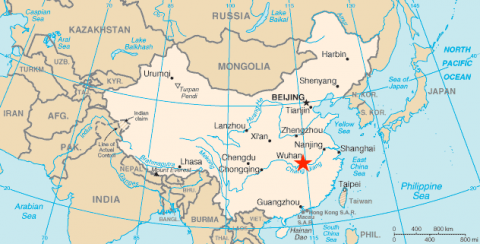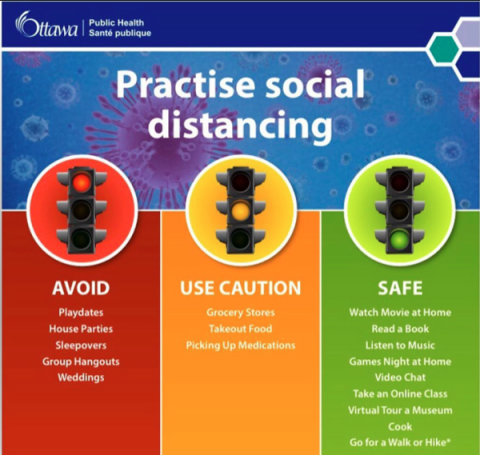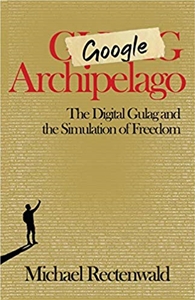Mark Steyn on the seven-hundred-and-fifty-third day of our captivity:

Emergency without end is the staple of almost every futuristic dystopia — and that’s true for real life, too. So Americans shuffle shoeless through the airports for twenty years while their governments negotiate with the very organization that enabled those attacks — the Taliban — to restore them to power. Is a culture that cannot see off goatherds with fertilizer really going to rouse itself to decouple from a global superpower that supplies everything from its crappy “These Colors Don’t Run” T-shirts to its surgical masks and pharmacy medications?
~For my own part, I have been reading ancient accounts from Occupied France and Vichy for tips on finding workarounds for restraints on the citizenry. As wily and innovative as the French Resistance were, I wonder if their efforts would even be possible in an age when cheap Chinese-made drones can hover unseen and monitor every conversation.
[…]
Even without governors terrorizing those tavern-keepers or hairdressers who defy them, the lockdown has exaggerated the contradictions: The state wants open borders for “migrants” but a security perimeter around the homes of its citizens. Maybe the absurdities become so obvious that there is widespread rejection of them. Or maybe, one by one, the poor put-upon over-surveilled citizenry take a cue from their undocumented non-brethren. Perhaps I should just mug an illegal immigrant and steal his fake ID…
~The emergency is already feeling permanent. It starts with the social norms: Dr Fauci tells us the handshake is gone for good. That’s not a small loss. I don’t care for the suggested replacements, like the lame-o hand-on-heart gesture. I bow from the neck to the Queen — and just last year I did so to her Canadian vicereine, Mme Payette. Her Excellency then stepped forward and gave me a hug. But I don’t suppose she’s doing that anymore…
People ask me why I haven’t been on TV lately. Well, I mainly like going on TV to behave like a person who’s on TV. So, if you notice, on the “Fox & Friends” live-audience shows, I come bounding in like Tigger and do a lot of gladhanding with those on the aisle (including the odd hug), and then I give Steve and Brian manly handshakes and do a little light kissy-kissy with Ainsley. And all that — the basic language of telly for seventy years — is gone, apparently forever.
[…]
The WHO, the Beijing public relations firm whose pronouncements the BBC, The New York Times et al insist on taking as gospel, now says Covid-19 is here to stay — like HIV. With HIV, it wasn’t that difficult to avoid catching it, because it required the exchange of bodily fluids, which is a fairly intense and specific degree of intimacy. With Covid, we are rolling a protective condom down over every routine social intercourse.
A contributor at the Continental Telegraph explains why he no longer supports the lockdown:
First, it turns out that the drastic steps we were taking were based on one model. That no one outside the team using it was allowed to review. We were even told that we couldn’t check the coding because it was so old & patched together that it’s too hard to follow. That’s like saying you can’t check the brakes because you won’t be able to see all the duct tape and Velcro we’re using. Further, we’re told that this software doesn’t provide the same results from one run to the next.
Next, I heard about Dr. Ferguson’s history of wildly overestimating the fatalities from mad cow disease and bird flu (50k compared to <200, 200 million versus <500 respectively). Also, the CDC’s estimate of Ebola deaths in Sierra Leone (1.4 million compared to 8k). And let’s not forget the U.S. Public Health Service’s overshoot on the number of AIDS infections in 1993 (450k versus 17k). At this point I gave more thought to the issue of modeling – prior to retiring I was an actuary and modeling was what I did for a living. A few points about how modeling works: The more complex a system is, the more difficult it is to build a good model. And, more importantly, the more difficult it becomes to test your model and confirm that it accurately mirrors the real world. And this looks like one of the most complex systems to model I’ve ever heard of. How can you test this against reality? I don’t think you can. You can run simulations and confirm it looks like you expected, but that doesn’t mean the virus behaves like your model. Another point about modeling is that the results are extremely dependent on the assumptions you’re using. And in this case two critical assumptions are how infectious the virus is and how lethal it is. We still have a poor understanding of these variables months after we started Lockdown. Then a lot of us noticed that the goal shifted from “flattening the curve” to avoid a catastrophic overflow at hospitals to Lockdown until “fill in the blank” (in some states a vaccine, in others no deaths for 14 days, etc.). And the lockdown rules are inconsistent and illogical – in Michigan you can’t buy plant seeds but you can buy lottery tickets. To add insult to injury, many of the people with their foot on our necks violate the rules (the mayors of Chicago and New York, Dr. Ferguson, etc.). I’m stunned and angry at how little attention the human costs of the Lockdown receive. We know that this will lead to increased suicides, homicides and drug overdoses. Let’s not forget more child abuse, domestic violence, depression, drug and alcohol abuse, the list of miseries goes on a very, very long way (I may write up an article just on this, the Lockdown harpies should have to admit to all the harm they’re so enthusiastically spreading).

















